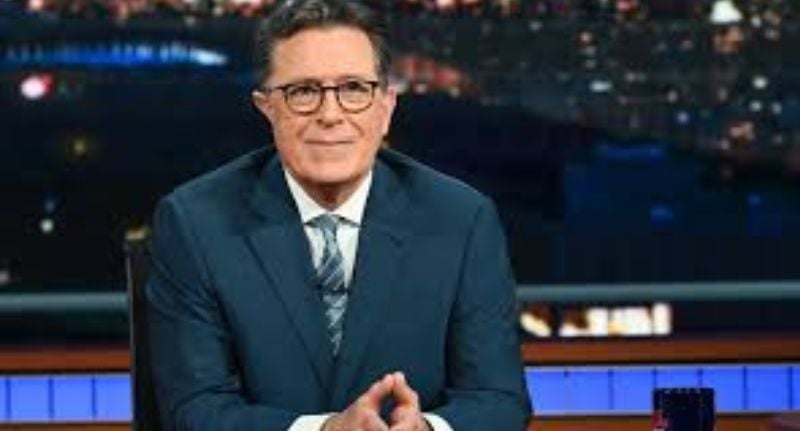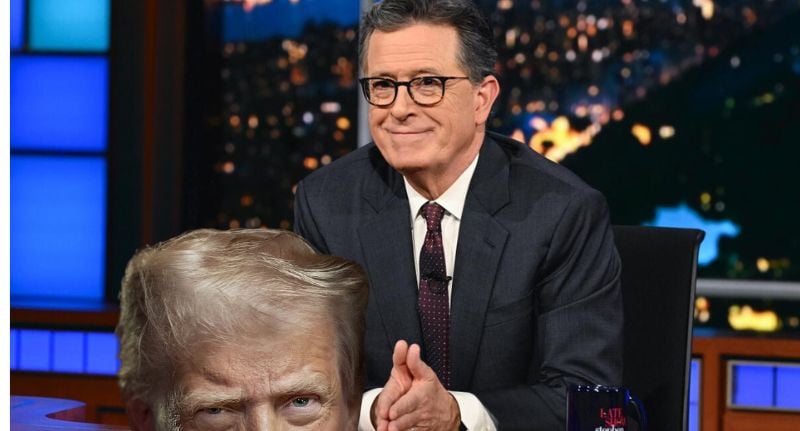By all traditional metrics, The Late Show with Stephen Colbert was a success.
It consistently led its timeslot, drew critical acclaim, and remained culturally relevant in an era where late-night TV is increasingly sidelined by streaming and social media.
And yet, CBS has confirmed that The Late Show will end in May 2026, with no plans to replace Colbert or the franchise.
Officially, the network says the decision was “purely financial.”
But many in the industry, and increasingly, the public, are asking a different question: Was this really about the bottom line? Or is Colbert’s exit a reflection of a deeper shift in how media power is being brokered, behind closed doors, at the intersection of politics, journalism, and business?
The exit that doesn’t quite add up
“This is all just going away,” Colbert told his audience on Thursday, after being informed of the cancellation the night before. “It is a fantastic job. I wish somebody else was getting it, and it’s a job that I’m looking forward to doing with this usual gang of idiots for another 10 months.”
The crowd booed. Colbert, visibly emotional, thanked CBS executives, his team of 200 staffers, and the viewers who kept tuning in. The 61-year-old host wasn’t flailing in the ratings, actually, far from it.
During Q2 of 2025, The Late Show drew 1.9 million viewers, according to Nielsen, ahead of Jimmy Kimmel (1.5 million) and Jimmy Fallon (1.1 million). The only late-night show beating Colbert was Fox News’s Gutfeld! with 3 million, though that program operates within a cable news ecosystem, not a broadcast one.
And yet, CBS made its call. “This is purely a financial decision against a challenging backdrop in late night. It is not related in any way to the show’s performance, content or other matters happening at Paramount,” the network’s leadership said in a statement.
But is that the full picture?
The Trump lawsuit, merger politics, and timing questions
Colbert’s exit comes just weeks after CBS’s parent company, Paramount Global, agreed to a $16 million settlement in a lawsuit brought by former President Donald Trump.
The suit stemmed from a 60 Minutes interview with Vice President Kamala Harris during the 2024 election campaign. Trump accused the network of editing the interview in a misleading way and demanded $20 billion in damages, a claim that First Amendment experts broadly dismissed as meritless.
Paramount didn’t pay Trump directly, but the settlement covered legal fees and included a contribution to Trump’s planned presidential library. There were also reports of agreements around future advertising, which Paramount denies.
This all unfolded while Paramount was seeking federal approval for an $8.4 billion merger with Skydance Media. That approval process rests with the Federal Communications Commission, now influenced by Trump appointees following his 2024 re-election.
Put bluntly, the stakes are high. And as David A. Graham points out in The Atlantic, CBS’s recent moves, including the Colbert decision, may be less about immediate financials and more about political positioning.
A deeper pattern… or just bad optics?
Graham doesn’t go so far as to say CBS cancelled The Late Show to curry favour with Trump. But he lays out a series of events that raise questions about editorial independence:
• CBS handed over internal 60 Minutes transcripts to Brendan Carr, a Trump-aligned FCC official.
• 60 Minutes executive producer Bill Owens, widely respected in the industry, resigned, telling staff, “It’s clear the company is done with me.”
• Trump, once again in power, has shown he’s willing to use merger approvals as leverage against media companies, just as he tried with AT&T’s CNN-linked merger during his first term.
Then Colbert, a prominent Trump critic, is abruptly shown the door.
Senator Adam Schiff, a guest on Colbert’s Thursday broadcast, voiced concern after the announcement: “If Paramount and CBS ended The Late Show for political reasons, the public deserves to know. And deserves better.”

Stephen Colbert
When institutions bend, what breaks?
In his column, Graham draws a warning from another institution, Columbia University, which also tried to take a conciliatory approach to Trump administration pressure.
That strategy didn’t de-escalate things; it invited more interference, eventually resulting in Trump seeking judicial oversight of the university. The takeaway? Give an inch, and the pressure doesn’t ease, it intensifies.
The same logic, Graham argues, applies to media companies. “Institutions that are willing to sacrifice their values for the government’s favour are likely to end up with neither,” he writes.
It’s a caution that feels particularly pointed when applied to CBS, a network that once built its legacy on the authority of figures like Walter Cronkite, but now finds itself navigating a media environment where political and corporate survival often collide.
What does Colbert’s exit really tell us?
It’s entirely possible CBS’s call was what they say it was: a tough financial decision amid the slow decline of late-night TV. But even if that’s true, the context around the decision muddies the waters.
When a media company settles a lawsuit with a sitting president, seeks his administration’s approval for a major merger, and then lets go of one of his most visible critics, within a span of months, it invites scrutiny. And perhaps more importantly, it prompts questions about how editorial choices are being made in the current climate.
As Graham puts it, “Colbert’s exit might seem like a one-off. A business decision. A talent moving on. But when viewed in the context of a merger, a lawsuit, and a political power play, it looks more like a symptom of something deeper.”
Who guards the gate?
For now, The Late Show will continue until May 2026, with Colbert planning to stay at the helm until the final episode. What happens after that remains unclear, there are no plans for a replacement show or host.
What is clear, however, is that the media landscape is shifting, not just in terms of audience behaviour and content strategy, but in how power is being negotiated behind the scenes. Legacy outlets like CBS are no longer just broadcasters. They’re assets in billion-dollar deals, political players, and, at times, lightning rods in a culture war.
Colbert’s departure might be the end of a show. Or it might be the beginning of a more uncomfortable story about influence, compromise, and the slow erosion of editorial independence in American media.
As the dust settles, the bigger question looms: When gatekeepers stop guarding the gate, who’s left to protect the truth?
